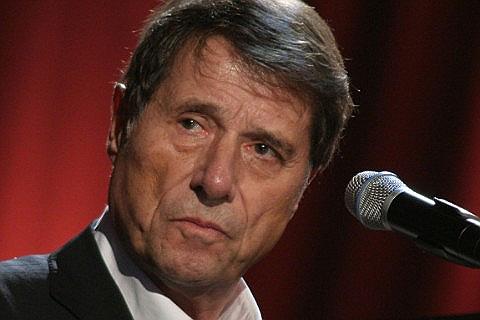Helmut Qualtinger/Gerhard Bronner - Die Alte Engelmacherin (The old angelmaker) 1957
Likely to be one of the meanest songs ever written, this song ironically describes the profession of the angelmaker (women with no medical knowledge who conducted abortions until the mid 20th century). It is the example of Austrian black humour.
Helmut Qualtinger (1928-1986) was an Austrian actor, comedian, musician and considered one of the most talented Austrians of his kind ever - despite his slightly unhealthy lifestyle which led to his early death. His works range from clasiscal Austrian songs over short films such as "Der Herr Karl" which is considered one of the best critiques on the pragmatic and unethical way many Austrians dealt with national socialism (and more), recitations of "Mein Kampf" and roles in movies including "The name of the Rose".
Gerhard Bronner (1922-2007) was an Austrian musician and comedian and composed the song. He rose to a decent popularity but never became as succesful as Qualtinger.
The old Angelmaker
When I remember past times,
The wonderful sights,
Our Vienna of those old times,
Then my old Viennan heart beats up to my head.
My father often told me
About the chairwoman*, the chestnutseller,
And with the fiakerer** and waterer***
The most beautiful professions of Vienna disappeared.
People sang about it with much empathy
But yet for one profession no song had been written before:
The old angelmaker from the Diamantegrund****,
She doesn't exist any more,
Quite a few girls who were in trouble
And nearly dead of shame and fear,
Were safed by her in their honor.
She made a fly out of every elephant*****
and soon gained a lot of popularity.
Because even when you have no worries today,
You might already have them tomorrow
And she was the only one who knew a solution.
Her clients were never sceptical,
They stayed loyal throughout their life,
And when her tools were not quite antiseptic once in a while,
She made two angels instead of one.
The old angelmaker from the Diamentengrund
Defended herself then:
Just think about it,
There are so many angels in heaven,
One or two really don't make a difference,
Hello!
She prevented a lot of catastrophies,
Also she fought against the lack of housing,
And even though nobody perhaps thinks about it,
She was the first one in Vienna to smash atoms.
She didn't give herself a title******,
So modest was she in her methods.
What the doctors did with a lot of Evipan,
She did just with her faith into god.
And sometimes, in honor of her honorable doings,
The angels came on holiday to Vienna.
To the old angelmaker from the Diamantengrund,
We loved her so much,
Because her help was for everyone
And her social mind was almost legendary.
The old angelmaker was known by everyone at the Diamantengrund,
Even by the police,
But also Mister Polizeirat ******* is a human and married,
so he saw nothing wrong in it.
But in life there are always people who are jelous at you,
The doctors banned her business,
Nowadays they do the exactly same thing, but unfortunately
They ask for ten times as much money.
The old angelmaker from the Diamantengrund,
couldn't stand this for long.
And after a few years she unfortunately became an angel herself
and then the other angels killed her off.
Hello!
* Women who offered chairs for rents in the parks
** Term for cabmen in Vienna
*** The man who provided the horses of the Fiakerer with water
**** An area in Vienna
***** Parody on the Austrian term "making an elephant out of a fly" which means sort of making a problem where there isn't really one
******Austrians usually take titles very seriously
******* Chief Police official











